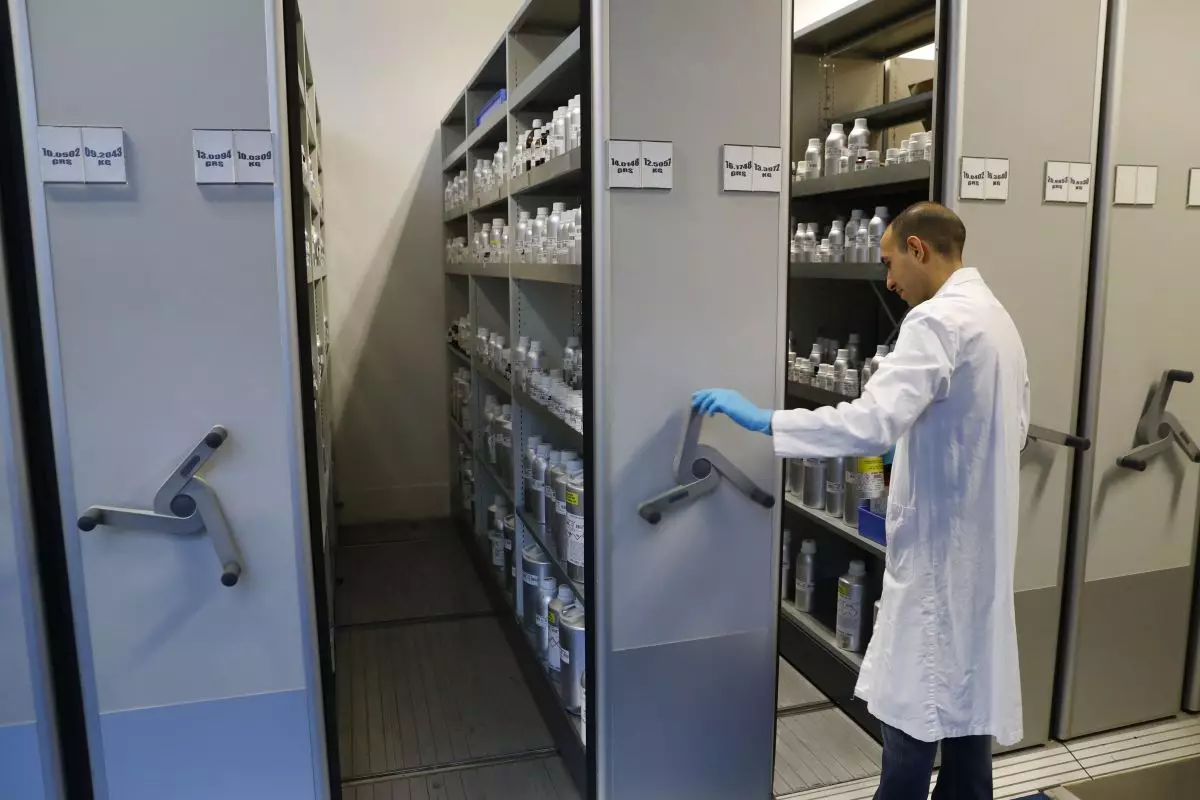The field of chemistry is on the cusp of a significant revolution, fueled by advancements in generative artificial intelligence (AI). As researchers grapple with the complexities inherent in chemical experimentation, the integration of AI is providing unprecedented support across many scientific disciplines. The latest example of this transformative shift is embodied by a startup called Albert Invent, which has developed a state-of-the-art AI platform specifically designed to enhance chemical research processes.
Founded by innovative entrepreneurs with a background in 3D printing and materials science, Albert Invent offers its flagship product, the Albert Breakthrough platform. This platform is a culmination of extensive training on data derived from over 15 million previous chemical experiments, positioning itself as a powerful tool for chemists. Their goal is to ease the repetitive trial-and-error processes that are customary in research and allow for more refined, efficient experimentation. This application of generative AI enables chemists to leverage molecular-level data in real-time, effectively transforming how they formulate and analyze chemical compounds.
The company recently achieved significant milestones by securing a $22.5 million Series A funding round led by Coatue Management. This substantial investment underscores the growing confidence in AI’s capabilities to address scientific challenges and enhance product development within the chemical sector. Albert Invent’s proprietary AI technology aims to elevate the rate at which new chemical products can be conceptualized and brought into production.
Albert Breakthrough’s unique value proposition lies in its method of combining structured data with tailored AI models. Industry giants such as Chemours, Henkel, and Nouryon have already recognized the platform’s utility, integrating it into their product development pipelines. CEO Nick Talken envisions a future where deep insights derived from AI will drive not just efficiencies but also foundational changes in the field of chemistry.
In an era where sustainability and personalized solutions are paramount, the need for innovative chemical products has never been greater. Albert Invent contends that their technology can play a pivotal role in addressing some of the most pressing scientific issues, from sustainability challenges to advancements in medical device technology.
One of the distinguishing features of Albert Invent is its commitment to developing its own foundational models tailored for the chemical industry. While acknowledging the potential utility of external models from organizations like OpenAI, Talken emphasizes that their primary focus remains on domain-specific knowledge. By exclusively utilizing data from a vast pool of publicly available chemical information, Albert Invent can fine-tune its models to meet the exacting standards of the scientific community.
This painstaking attention to detail is critical for ensuring accuracy and relevance in predictions made by the AI. The founders’ prior experience in developing 3D materials for Henkel provided them with a robust understanding of the chemistry landscape, which they have efficiently harnessed to create their AI models. By incubating Albert Invent within Henkel, they bridged theoretical knowledge with practical applications, setting a firm foundation for the venture’s future.
The implications of Albert Invent’s platform extend beyond the immediate efficiency gains in product development. As AI increasingly becomes a staple in research methodologies across various scientific disciplines, the notion of a revolution in the way chemistry is performed takes shape. Investors and industry leaders alike are optimistic about the potential for more rapid, sustainable, and refined product development processes.
Statements from industry stakeholders highlight their anticipation for how Albert Invent’s technology can reshape chemistry research methodologies, indicating a robust interest in adopting AI tools that foster innovation. David Schneider from Coatue reflects the optimism that comes from supporting a company that aims to redefine chemistry research through AI-driven efficiencies.
As generative AI technologies continue to embed themselves into structural frameworks of scientific research, the case of Albert Invent stands as a beacon of progress. By merging domain-specific expertise with cutting-edge AI models, the company is setting a remarkable precedent for the way chemical research will evolve. As the industry takes notice and actively engages with these technologies, it is evident that chemistry will not only advance but may also pivot in entirely new directions thanks to AI innovations. The future of chemical research thus appears bright and teeming with possibilities, driven by the transformative power of artificial intelligence.

